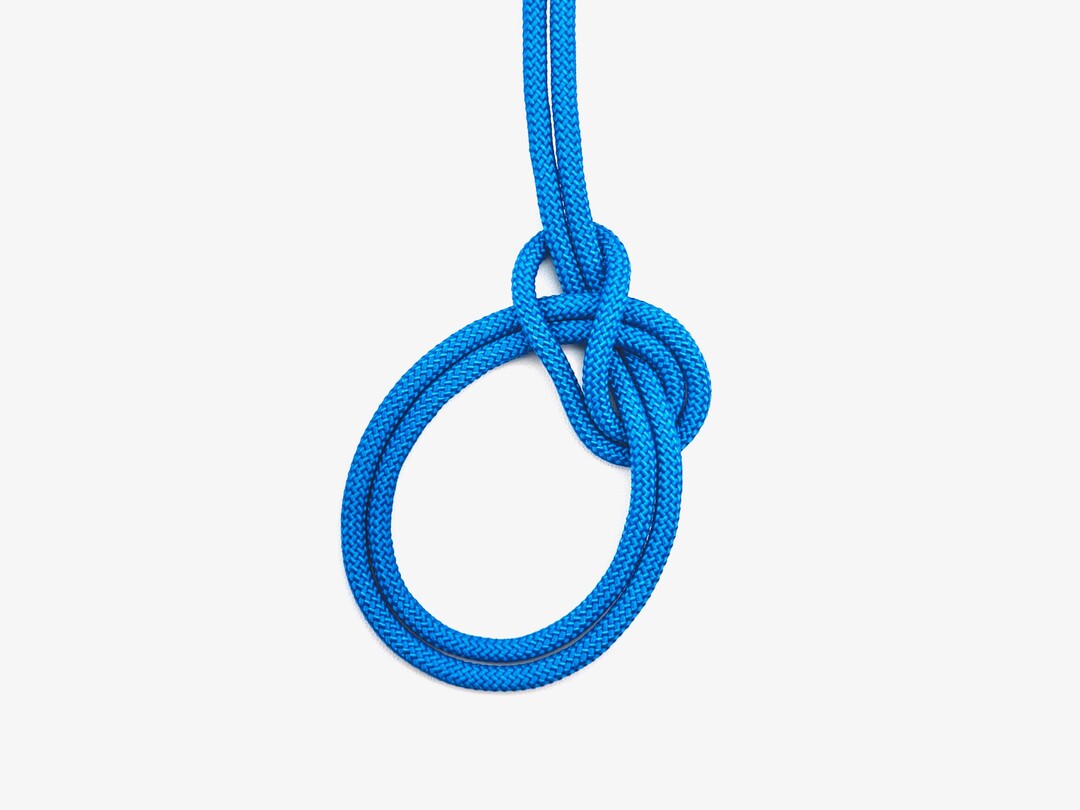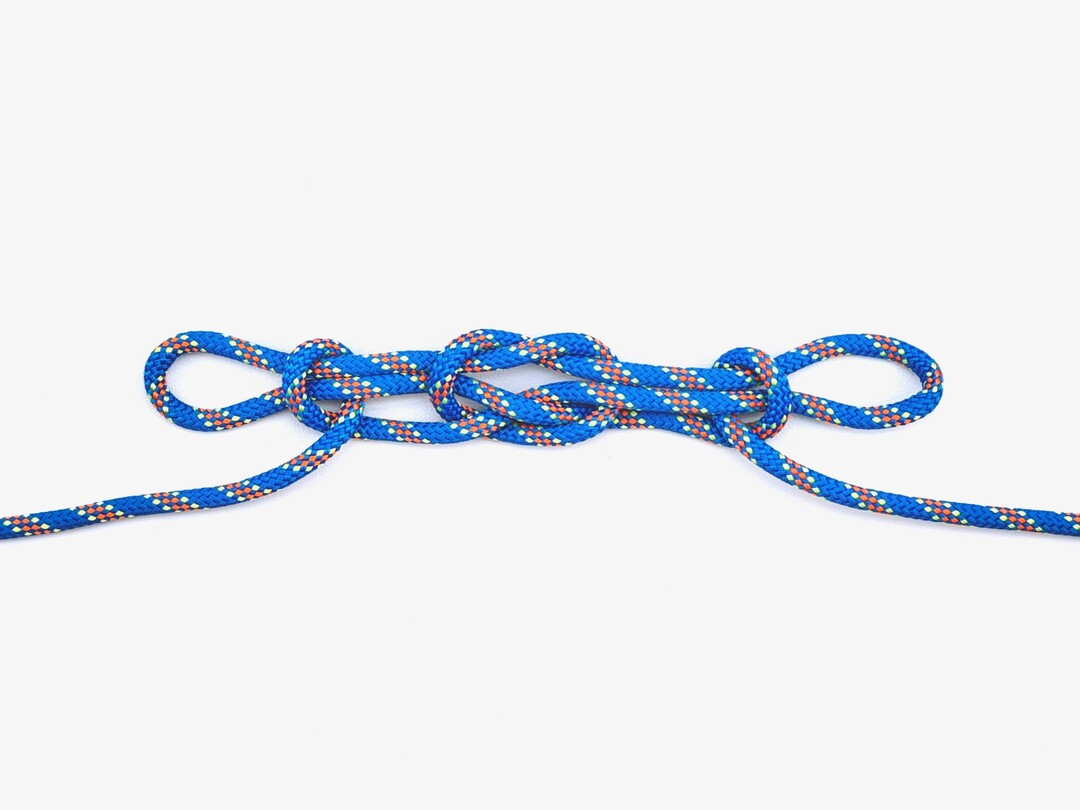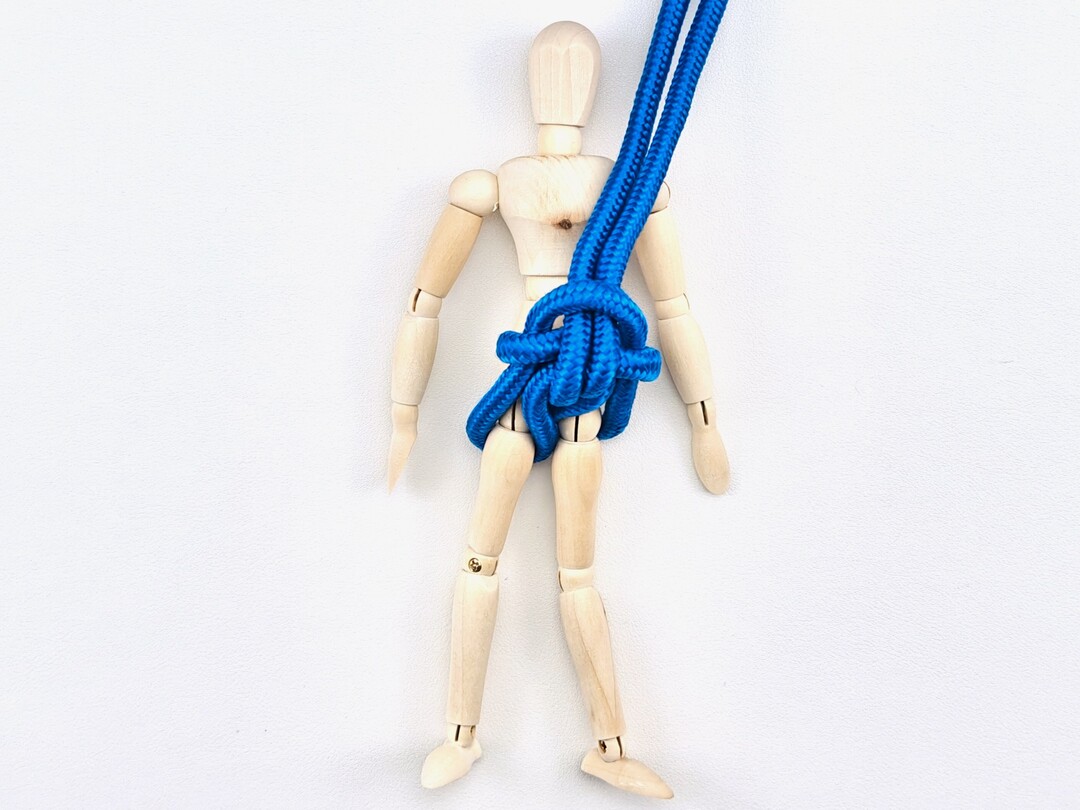
Step-by-Step Instructions
Step 1

Step 2
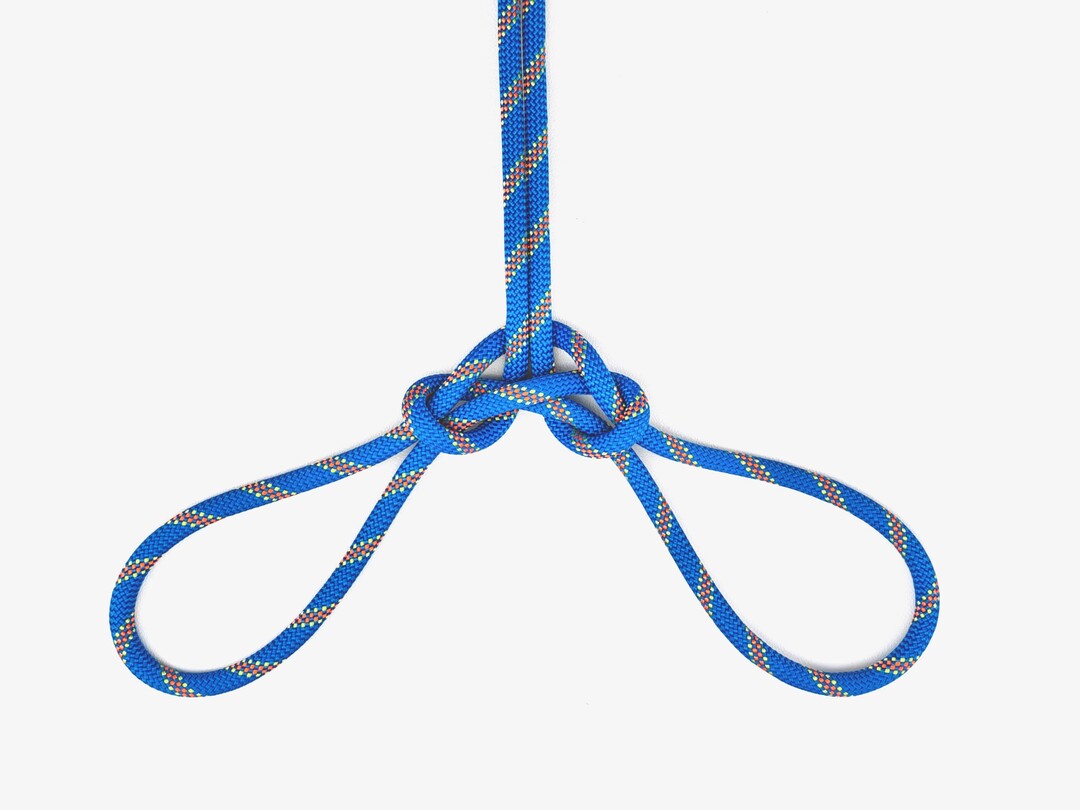
Step 3

Step 4
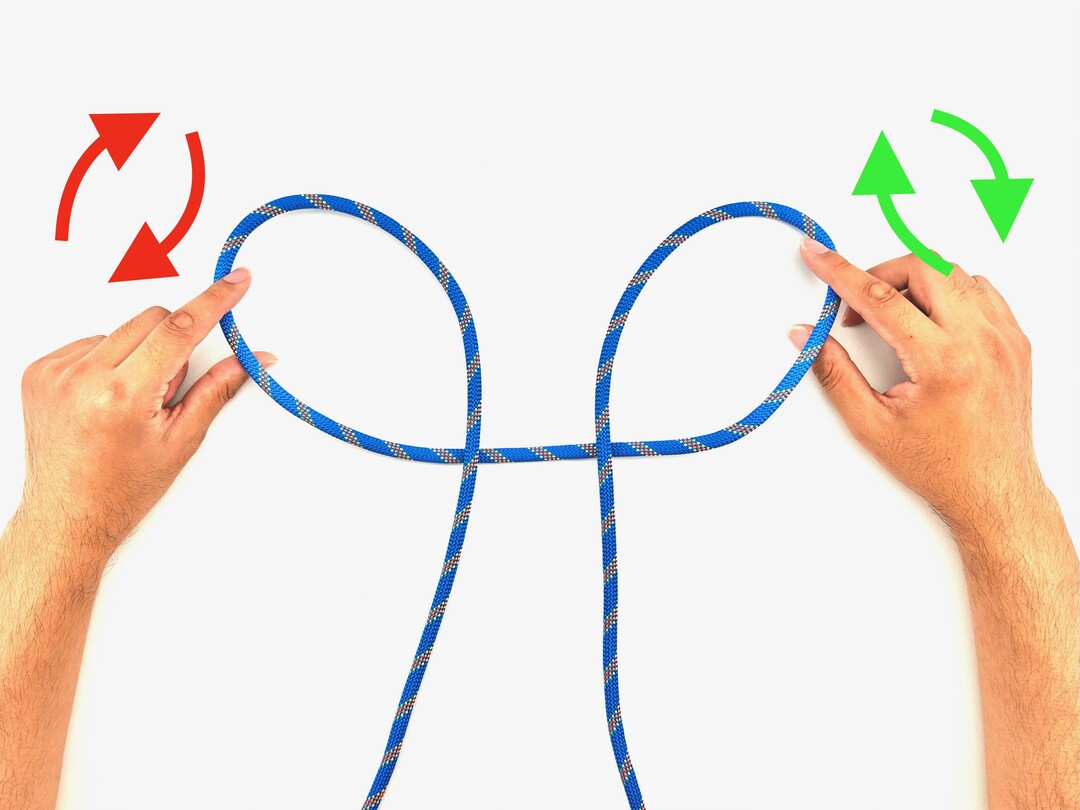
Step 5
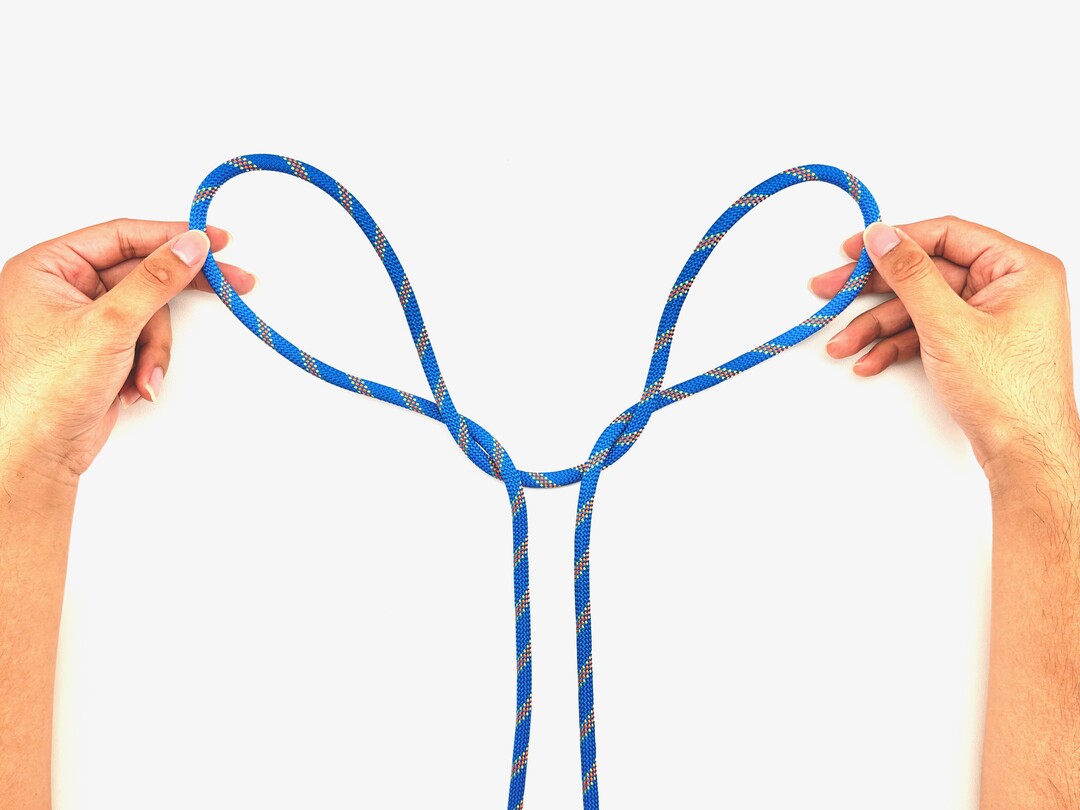
Step 6

Step 7

Step 8

Step 9

Step 10
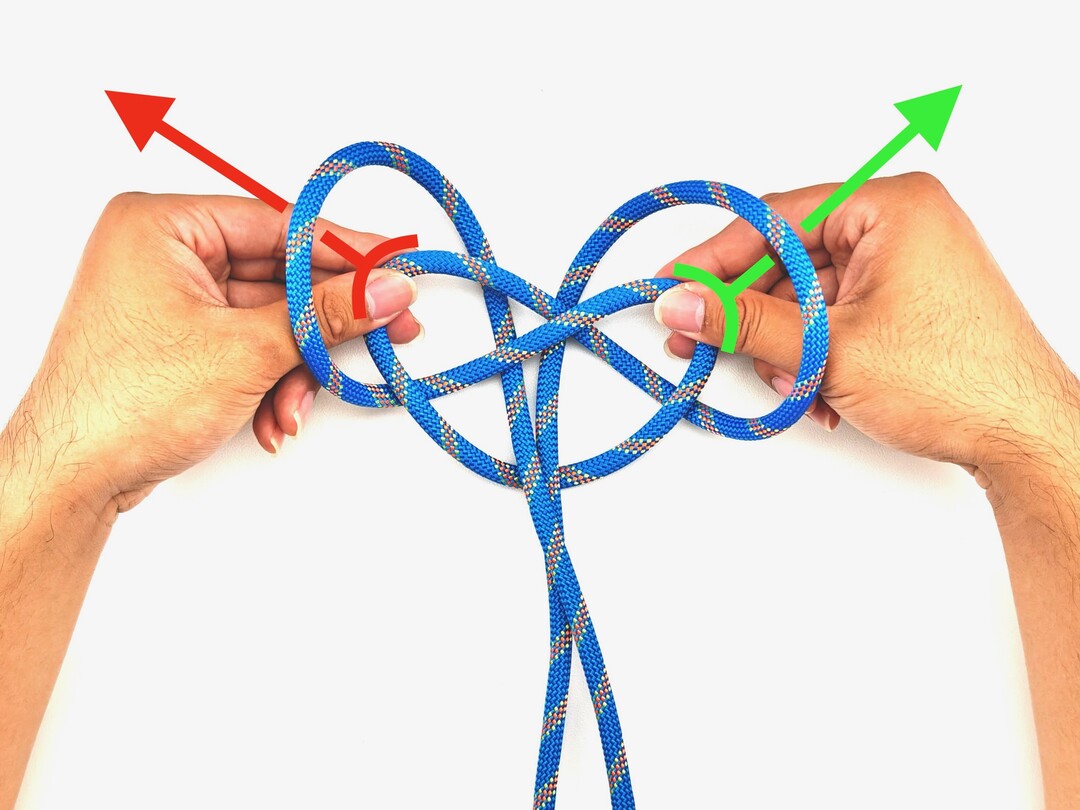
Step 11
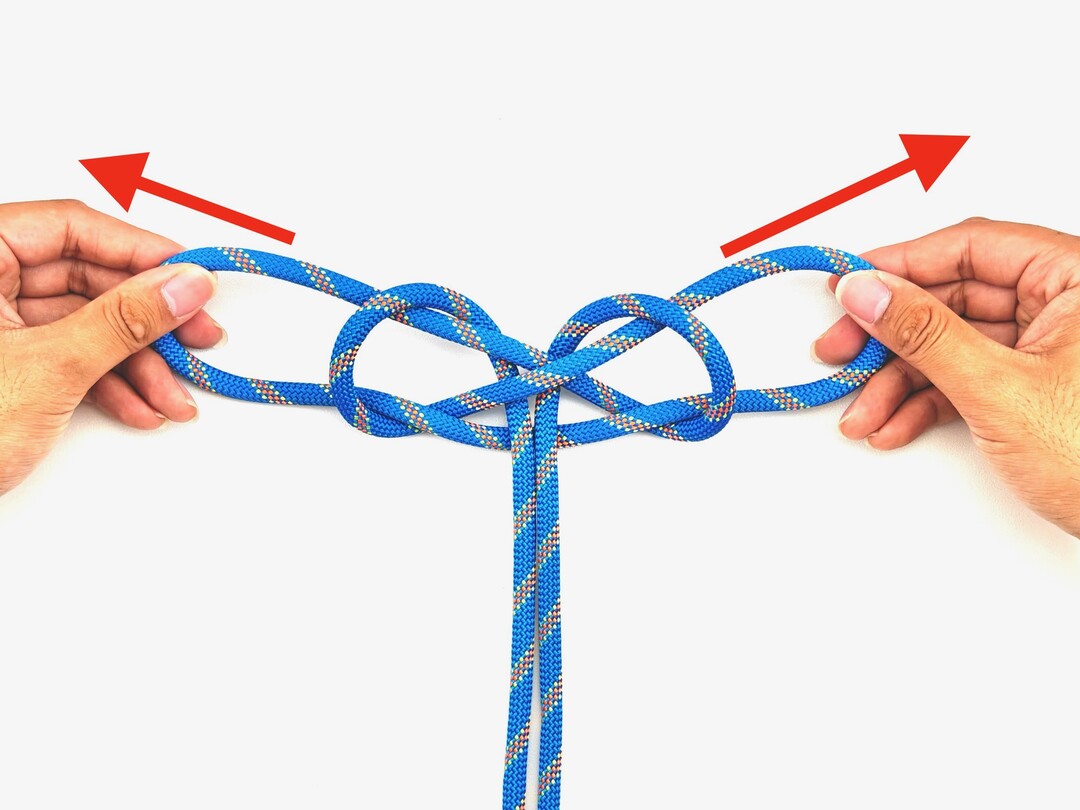
Step 12
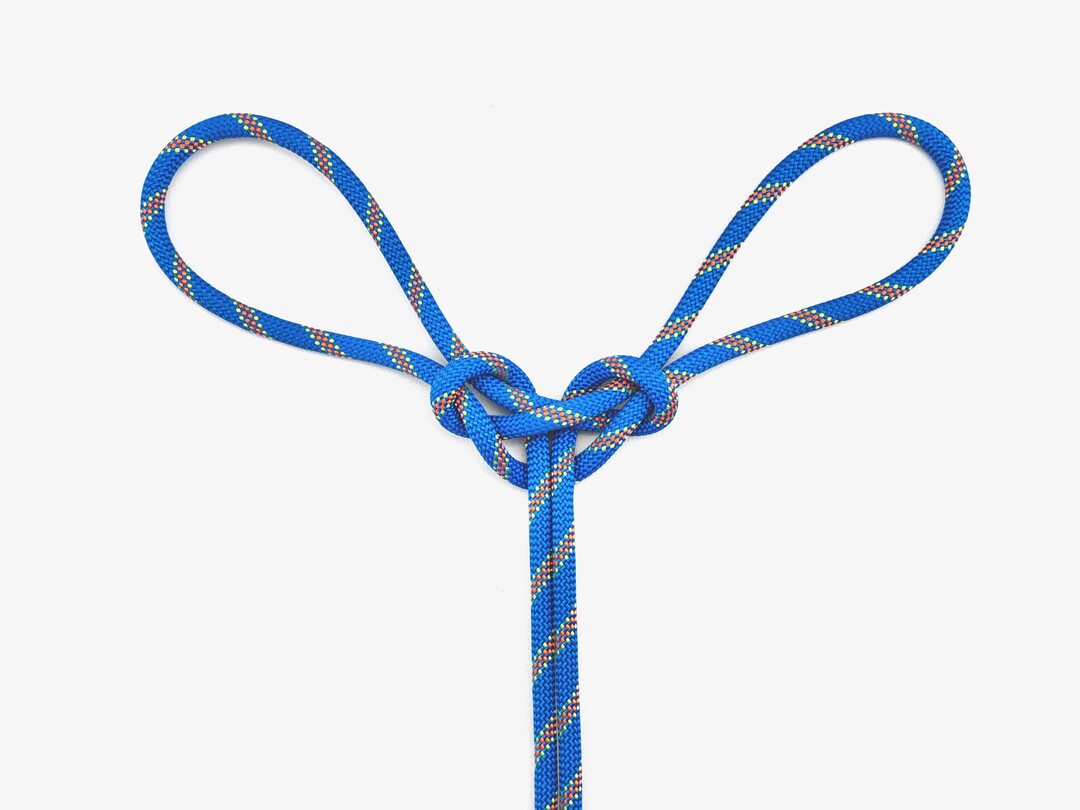
Spanish Bowline
Creates two fixed loops for rescue or load distribution.
The Spanish Bowline forms two adjustable loops that lock into position, ideal for rescue operations or securing loads. It evenly distributes weight, making it suitable for lifting individuals (e.g., as a makeshift Bosun’s chair). In rescues, loops can be placed around legs, with additional chest support for unconscious persons. Tied in the middle of a rope, it ensures balanced strain on both loops.
Advantages
Provides even weight distribution with two fixed loops, essential for safe lifting and rescue scenarios. Works well in mid-rope applications.
Disadvantages
Complex to tie; improper tightening may cause slippage, risking safety in high-stress situations. Requires firm setup to prevent loop interference.

